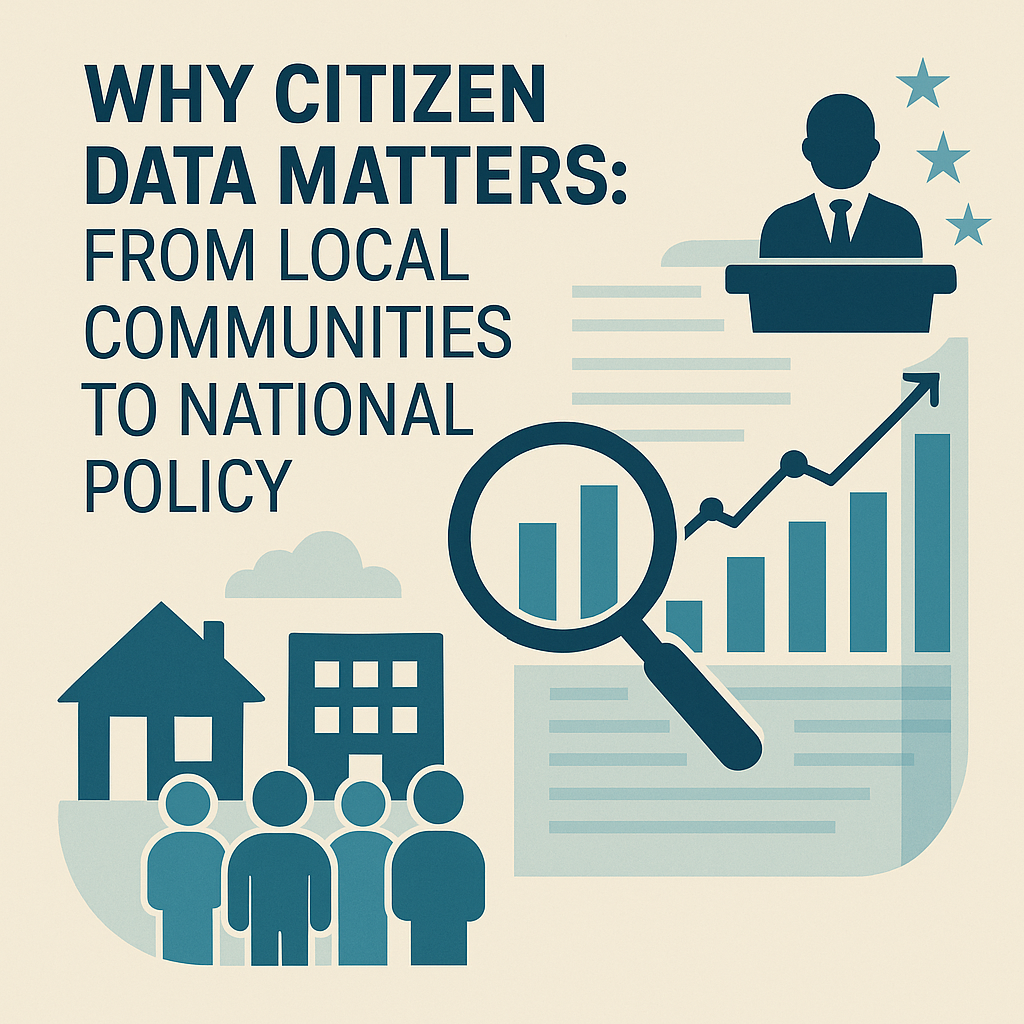In today’s fast-changing world, every decision that affects our lives — from the roads we drive on to the schools our children attend — should be rooted in accurate, up-to-date data. Yet in many parts of the world, especially developing democracies like Nigeria, government decisions are often made without reliable information from the people they’re meant to serve. That’s where citizen-driven data comes in — and why organizations like CIG NG (Citizens’ Inclusion in Governance) are stepping up to bridge this critical gap.
The Missing Link: Decisions Without the People
Governments routinely design projects “for the people,” but too often, without the people. Policies are drafted, budgets are approved, and programs are launched based on assumptions rather than evidence. When citizens’ real needs aren’t reflected in the data, the result is predictable — abandoned projects, wasted resources, and growing public distrust.
Citizen data changes that equation. When governments collect, validate, and act on real feedback from communities, every initiative becomes smarter and more effective. Schools are built where they’re actually needed. Health programs reach the most vulnerable. And development budgets start to reflect the real priorities of ordinary people.
What Is Citizen Data?
Citizen data simply means information gathered directly from citizens — not filtered through bureaucracy or politics. It can take many forms:
- Community surveys
- Feedback on public services
- Reports on local infrastructure or education gaps
- Economic data from households and small businesses
In essence, citizen data gives policymakers a clearer picture of reality — one that reflects both needs and aspirations at the grassroots level.
Evidence-Based Governance: Why It Works
When governments use data to drive policy, results improve dramatically. Countries that have adopted citizen data platforms — such as Kenya’s Open Data Initiative or Ghana’s e-Governance framework — have seen:
- Faster response times to social issues
- Better resource allocation
- Increased public trust and participation
For Nigeria, this approach could transform how public funds are spent and how progress is measured.
The Role of CIG NG
CIG NG is building a platform that connects citizens directly to the machinery of governance. By collecting verifiable data from communities, the platform aims to:
- Bridge the information gap between government and citizens
- Empower policymakers with accurate, citizen-sourced insights
- Promote transparency, accountability, and trust
- Support data-driven development across all levels of government
Through this initiative, ordinary Nigerians can finally influence how policies are made — not through protests or petitions, but through evidence that cannot be ignored.
Challenges Along the Way
Citizen data isn’t without its challenges. Issues like data privacy, verification, and inclusivity must be handled carefully. Not every community has digital access, and not every voice is equally heard. But with the right systems in place — transparent processes, local partnerships, and clear communication — citizen-powered data can become the backbone of governance reform.
A Call to Action
The future of effective governance depends on one simple principle: listen to the people. Citizen data makes that possible — and scalable.
At CIG NG, we believe that every citizen’s voice is a data point that matters. When combined, these voices form the most accurate map of Nigeria’s realities. From local communities to the national policy level, citizen data is not just a tool — it’s a movement toward inclusive, transparent governance.
Join the conversation.
Visit cigng.com to learn more about how you can participate in our surveys, share feedback, and help shape a more responsive government for all.

